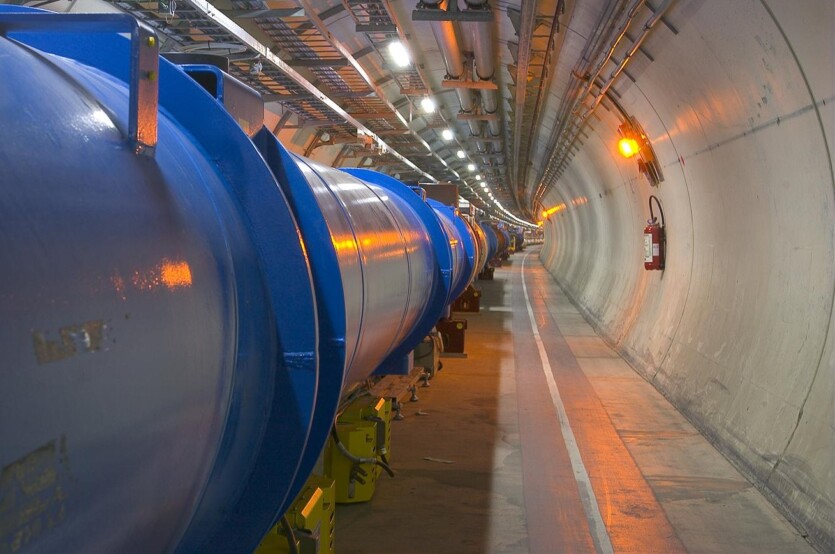
At the end of November, the European Organization for Nuclear Research (CERN) officially terminated its long-standing collaboration with Russian scientists and engineers — and closed access to the Large Hadron Collider The Large Hadron Collider is the world's largest elementary particle accelerator, constructed at the European Organization for Nuclear Research (CERN), near Geneva (Switzerland), between 1998 and 2008. The accelerator is located in a tunnel (in the shape of a torus with a circumference of 27 km) at a depth of up to 175 m (570 feet) underground on the border of France and Switzerland, near Geneva, Switzerland. As suggested by its name, it is designed to accelerate hadrons, specifically protons and heavy ions., reports the German publication Heise (via Highload).
The Large Hadron Collider is the world's largest elementary particle accelerator, constructed at the European Organization for Nuclear Research (CERN), near Geneva (Switzerland), between 1998 and 2008. The accelerator is located in a tunnel (in the shape of a torus with a circumference of 27 km) at a depth of up to 175 m (570 feet) underground on the border of France and Switzerland, near Geneva, Switzerland. As suggested by its name, it is designed to accelerate hadrons, specifically protons and heavy ions., reports the German publication Heise (via Highload).
In fact, the implementation of these intentions had been discussed since the beginning of the great war: in March 2022, the CERN council condemned Russia’s invasion of Ukraine and also banned starting new projects with Russian institutes and froze old ones.
As of November 30, according to the CERN resolution, collaboration with Russia is terminated definitively, as this date coincides with the expiration of the current International Cooperation Agreement (as was the case with Belarus in June 2024). This means that about 400-500 Russians will no longer be able to collaborate with CERN (previously, about 100 Russian researchers changed their workplaces to continue collaboration with the research center).
Meanwhile, some researchers are “concerned” about this decision, noting that with the exclusion of Russia “much know-how will be lost.” However, primarily, this is expected to lead to the loss of some financial and material contributions: the occupying country had provided CERN with approximately 2.7 million Swiss francs per year (about 4.5% of the current expenses for experiments conducted in the Large Hadron Collider), as well as their own spare parts.
Currently, CERN counts 24 member countries, 10 associate member states, two states and two multilateral organizations with observer status, and also has cooperation agreements with 48 countries. CERN itself employs about 2500 permanent staff, and thousands of people from 110 countries conduct research in the organization (in total, about 14,000 scientists are involved in the international network in research institutes worldwide).
In the future, the European Organization for Nuclear Research plans to build a new 91-kilometer circular accelerator estimated to cost between 10-20 billion euros — making it at least three times as expensive as the current one.
It is also worth noting that CERN does not sever all ties with Russia — an agreement will continue to operate between the European organization and the Joint Institute for Nuclear Research in Dubna, which is over 80% financed by the Russian state.

Spelling error report
The following text will be sent to our editors: